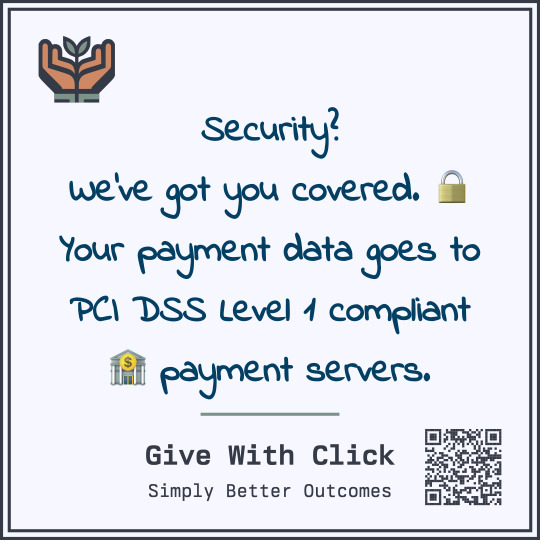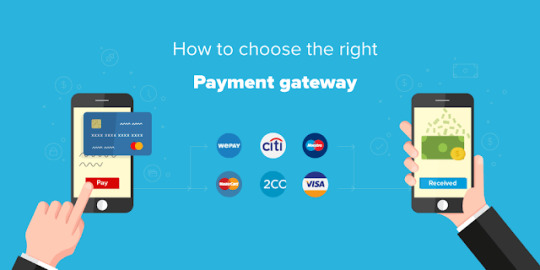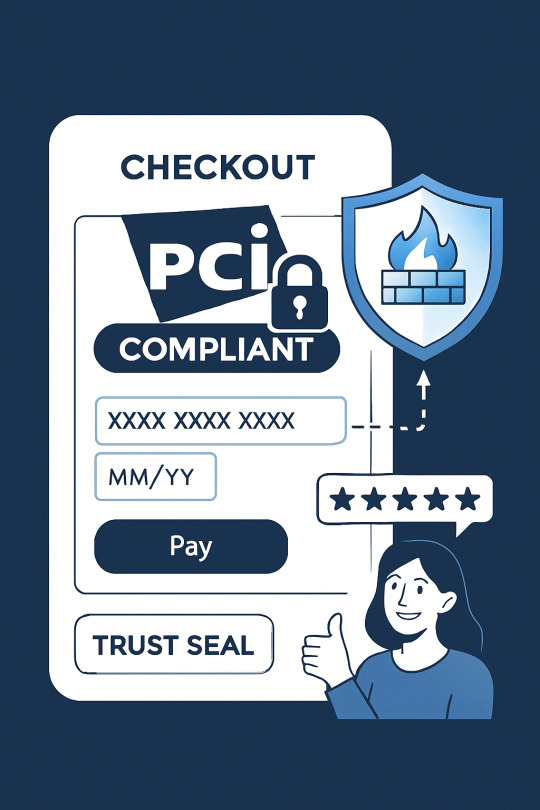#PCICompliant
Explore tagged Tumblr posts
Text
🔐 Security You Can Trust
When it comes to money, there’s no room for compromise. SprintNXT’s UPI Collection API is built with PCI-DSS aligned protocols, offering encryption, fraud monitoring, and secure communication—all while keeping transactions lightning fast.
0 notes
Text
PCI DSS Certifications: Ensuring Payment Security Compliance
What is PCI DSS Certification?

PCI DSS Certification is a globally recognized security standard designed to protect cardholder data and prevent payment fraud. Developed by the PCI Security Standards Council (PCI SSC), this standard applies to all organizations that process, store, or transmit credit card information.
Compliance with PCI DSS is not optional—it is a mandatory requirement enforced by major card brands such as Visa, MasterCard, American Express, Discover, and JCB. Organizations that fail to comply with PCI DSS may face hefty fines, reputational damage, and even loss of the ability to process card payments.
#PCI DSS Certification#PCIDSS#CyberSecurity#DataProtection#Compliance#PaymentSecurity#InfoSec#CyberRisk#SecurityStandards#DataSecurity#PCICompliance#FraudPrevention#SecurePayments#RiskManagement#ITSecurity
1 note
·
View note
Text
5 Weapons Against Data Breaches and Ransomware | Red Maple
MS Dynamics advanced credit card solution with PCI compliance security by Red Maple™ and StagedPay protects customers from data breaches and ransomware.
#DataSecurity#RansomwareProtection#CyberSecurity#PCICompliance#RedMapleSolutions#DataBreachPrevention#SecurePayments
0 notes
Text

Security? We’ve got you covered. 🔒 Your payment data goes to PCI DSS Level 1 compliant 🏦 payment servers.
0 notes
Text
How to Choose a Payment Gateway That Supports International Transactions

1. Understand Your Business Needs
Before diving into the specifics of payment gateways, assess your business’s unique requirements. Consider the following:
Target Markets: Identify the countries and regions where your customers are based.
Currency Requirements: Determine which currencies you need to support.
Transaction Volume: Estimate the volume of transactions you expect to handle.
Understanding these factors will help you narrow down your options to gateways that align with your business objectives.
2. Evaluate Multi-Currency Support
A payment gateway that supports multiple currencies is crucial for international transactions. Look for gateways that offer:
Automatic Currency Conversion: Ensures customers see prices in their local currency.
Multi-Currency Accounts: Allows you to hold funds in various currencies and reduce conversion fees.
This feature helps provide a seamless shopping experience and minimizes the hassle of currency conversion for both you and your customers.
3. Check for Global Reach and Local Payment Methods
Ensure that the payment gateway supports transactions in the countries you are targeting. Some gateways have broader global reach and better integration with local payment methods, which can enhance customer satisfaction. Look for:
Local Payment Options: Integration with popular local payment methods and banks.
Language Support: User interfaces and customer service available in multiple languages.
Supporting local payment methods can improve conversion rates and cater to the preferences of international customers.
4. Assess Security and Compliance
Security is paramount in payment processing. Choose a gateway that adheres to industry standards and regulations, such as:
PCI-DSS Compliance: Ensures the gateway meets security standards for handling card information.
Fraud Prevention Tools: Features like advanced fraud detection and chargeback protection.
A secure payment gateway not only protects sensitive customer information but also builds trust and credibility for your business.
5. Consider Integration and Usability
The payment gateway should seamlessly integrate with your existing e-commerce platform and business systems. Look for:
Easy Integration: Compatibility with your website or shopping cart software.
User-Friendly Interface: An intuitive interface for both merchants and customers.
A smooth integration process minimizes technical issues and ensures a better user experience.
6. Evaluate Fees and Charges
Payment gateways often come with various fees, including:
Transaction Fees: A percentage of each transaction or a flat fee.
Monthly Fees: Subscription or service fees for using the gateway.
Currency Conversion Fees: Costs associated with converting funds to different currencies.
Compare the fee structures of different gateways and calculate how they impact your business’s bottom line.
7. Review Customer Support
Reliable customer support is essential for resolving any issues that may arise. Check for:
24/7 Support: Availability of support around the clock.
Multiple Channels: Support through various channels such as phone, email, and live chat.
Good customer support ensures you can quickly address any problems and minimize disruptions to your business.
8. Test the Gateway
Before committing, test the payment gateway to ensure it meets your needs. Many providers offer trial periods or demo accounts. Use these opportunities to:
Test Transactions: Conduct test transactions to verify the gateway’s performance.
Evaluate Customer Experience: Ensure the checkout process is smooth and user-friendly.
Testing helps identify any issues before going live and ensures the gateway operates as expected.
Conclusion
Choosing a online payment gateway that supports international transactions is a crucial decision for businesses aiming to expand globally. By understanding your business needs, evaluating multi-currency support, ensuring security and compliance, and considering fees and customer support, you can select a payment gateway that enhances your international operations. Take the time to research and test different options to find the best fit for your business’s growth and success in the global market.
#EcommerceSecurity#OnlinePayments#PaymentGateway#SSL#Encryption#FraudDetection#CyberSecurity#DataProtection#PCICompliance#Tokenization
0 notes
Text
In the rapidly evolving digital landscape, ensuring the security of transactions is paramount. Businesses handling card payments must comply with the Payment Card Industry Data Security Standard (PCI DSS) to safeguard sensitive cardholder information. However, achieving and maintaining PCI compliance can be a challenging endeavor. Enter AWS serverless architecture—an innovative solution to streamline PCI compliance. By leveraging PCI DSS compliance services on AWS, organizations can enhance security, reduce operational complexity, and cut costs
1 note
·
View note
Text
Fortifying Trust and Security: How Diginyze Protects Your Industrial Online Transactions
Security in industrial eCommerce? Diginyze has got it covered! Protect your online transactions with top-tier security measures. Find out how in our latest blog! https://www.diginyze.com/blog/fortifying-trust-and-security-how-diginyze-protects-your-industrial-online-transactions/

#hashtag#Diginyze hashtag#IndustrialSecurity hashtag#EcommerceSafety hashtag#B2BCommerce hashtag#DataPrivacy hashtag#IndustrialDistribution hashtag#eCommerceSecurity hashtag#OnlineTransactions hashtag#CyberSecurity hashtag#DataProtection hashtag#AIeCommerce hashtag#SecurePayments hashtag#FraudPrevention hashtag#DigitalTransformation hashtag#SSLencryption hashtag#PCICompliance hashtag#SupplyChainSecurity hashtag#BusinessContinuity hashtag#FraudDetection hashtag#CyberDefense hashtag#SecureECommerce
0 notes
Text
7 Must-Knows for Ultimate Security in Your Cloud-Based POS
The blog discusses the importance of security measures in cloud-based Point of Sale (POS) systems and provides a comprehensive guide on evaluating and ensuring the security of such systems. It covers various aspects such as data encryption, user authentication, monitoring user activity, data backups, payment card security, and employee training. Emphasizing the shared responsibility between the provider and the business, it concludes with proactive steps to enhance security posture and maintain a robust environment against evolving threats.
#CloudSecurity#POSsystems#DataEncryption#CyberSecurity#PaymentSecurity#UserAuthentication#DataBackup#PCICompliance#SecurityAwareness#PhishingPrevention#BusinessSecurity#SmallBusinessTips#InformationSecurity#DataProtection#ITSecurity#RiskManagement#ComplianceStandards#CyberAwareness#FraudPrevention#SecureTransactions
0 notes
Text
SHOPIFY SECURITY: PROTECTING STORE AND CUSTOMER DATA
In the bustling world of e-commerce, where transactions flow seamlessly and customer trust is paramount, safeguarding your Shopify store against security threats is not just advisable—it’s imperative. As the backbone of your online business, Shopify hosts a treasure trove of sensitive information, from customer data to financial transactions. In this blog, we delve into the realm of Shopify security, exploring best practices to fortify your store and protect both your business and your customers.
Understanding Shopify Security
At its core, Shopify security encompasses a multifaceted approach to protecting your store’s infrastructure, data, and transactions from unauthorized access, breaches, and malicious attacks. From securing login credentials to encrypting sensitive information, every aspect of your Shopify store warrants meticulous attention to detail.
Implementing Robust Authentication Measures
The journey to a secure Shopify store begins with authentication. Ensure that strong, unique passwords are in place for all user accounts associated with your store, including administrators, staff, and third-party apps. Consider implementing two-factor authentication (2FA) to add an extra layer of security, requiring users to verify their identity through a secondary method, such as a code sent to their mobile device.
Keeping Your Shopify Platform Updated
Regular updates are not just about adding new features; they’re also crucial for patching security vulnerabilities and fortifying your store against emerging threats. Stay vigilant for Shopify platform updates and promptly install them to ensure that your store remains resilient to potential exploits and vulnerabilities.
Secure Hosting and Data Encryption
Selecting a reputable hosting provider is paramount for Shopify security. Choose a provider that offers robust security features, including SSL/TLS encryption, DDoS protection, and regular security audits. Encrypt all sensitive data transmitted between your store and customers using SSL/TLS certificates, ensuring that communication remains confidential and secure.
Protecting Customer Data
Customer trust is the lifeblood of e-commerce, and safeguarding their personal information is non-negotiable. Implement stringent data protection measures to safeguard customer data, including names, addresses, payment details, and purchase history. Store sensitive information securely, utilizing encryption and access controls to restrict unauthorized access.
Payment Security and Compliance
As a merchant, ensuring the security of payment transactions is paramount. Shopify offers robust payment gateways that comply with Payment Card Industry Data Security Standard (PCI DSS) requirements, safeguarding credit card data and preventing unauthorized access. Choose PCI-compliant payment gateways and adhere to best practices for payment security to instill confidence in your customers and protect against financial fraud.
Third-Party App Vigilance
While third-party apps can enhance the functionality of your Shopify store, they also introduce potential security risks. Before installing any apps, thoroughly vet their security protocols, reviews, and permissions. Limit access permissions to only essential functionalities, and regularly audit installed apps to identify and remove any potential security vulnerabilities.
Regular Security Audits and Monitoring
Proactive monitoring and regular security audits are essential components of a robust Shopify security strategy. Implement automated monitoring tools to track suspicious activity, monitor access logs, and flag potential security incidents in real-time. Conduct regular security audits to identify and mitigate vulnerabilities before they can be exploited by malicious actors.
Educating Your Team and Customers
Security is a collective responsibility that extends beyond the confines of your Shopify store. Educate your team about security best practices, including password hygiene, phishing awareness, and response protocols for security incidents. Similarly, educate your customers about online security risks, encourage them to create strong passwords, and advise them to remain vigilant for phishing attempts and fraudulent activities.
Conclusion
In the dynamic landscape of e-commerce, Shopify security is not a one-time endeavor but an ongoing commitment to safeguarding your business and protecting your customers. By implementing robust authentication measures, securing hosting infrastructure, encrypting sensitive data, and adhering to compliance standards, you can fortify your Shopify store against evolving security threats.
Embrace security as a foundational pillar of your e-commerce empire, instilling confidence in your customers and fostering trust in your brand. With vigilance, diligence, and a proactive approach to security, you can navigate the digital landscape with confidence, knowing that your Shopify store stands fortified against adversarial forces.
To know more visit us at https://magnigeeks.com/
#ShopifySecurity#ECommerceProtection#SecureShopping#CustomerDataSafety#OnlineStoreSecurity#SecureTransactions#DataProtection#CyberSecurity#SafeShopping#SecurePayments#DataEncryption#PCICompliance#TwoFactorAuthentication#CyberAwareness#DataPrivacy#SecureHosting#ShopifyTips#ECommerceSecurity#CustomerTrust#magnigeeks
0 notes
Text

We're thrilled to announce that Tilli Software India Pvt. Ltd. has achieved the prestigious PCI-DSS Level 1 accreditation for all our fintech products in India! The suite of products includes Monay Payment Gateway, Digital Wallet, Monay Payment Processor, and B2B Payout Solution.
It's noteworthy that our US entity, Utilli LLC, already holds PCI-DSS Level 1 compliance for the last 4 years and adheres to all the stringent security compliance measures, benefiting our existing customers by reinforcing the trust and security in their transactions. Additionally, we are SOC2 and ISO-27001 compliant, ensuring a comprehensive approach to security and compliance. PCI DSS Level 1 is the gold standard in compliance and payment security. It ensures that we securely store, transmit, and process credit card information, adhering to the highest standards of security.
We are onboarding clients from different industries, including e-commerce, SaaS-based businesses, lending, fintech, and more, in search of a secure and compliant payment processing partner.
Join us in advancing towards a secure transaction landscape. Get registered to experience our secure payment solutions. https://gps-in.monay.com/portal/sign-up
#software#pcidsscompliant#PCIcompliance#certification#saas#ecommerce#payments#merchantsprocessing#Merchants#compliance#pcidss#cybersecurity#technology#monay#tilli#india#us
0 notes
Text
Securing Data Protection & Regulatory Adherence - Cloud Contact Centers | Ringflow

In today's digital age, ensuring data protection and regulatory adherence in cloud contact centers is of utmost importance. With Ringflow, businesses can rest assured that their customer data is safeguarded and compliance standards are met. Cloud contact centers play a crucial role in safeguarding customer data and ensuring regulatory compliance. By utilizing cloud contact center capabilities, businesses can protect customer data, maintain compliance with regulations such as GDPR, TCPA, HIPAA, and more, and mitigate the risk of data breaches. Cloud platforms offer robust security features such as encryption, strong password policies, role-based permissions, and network intrusion detection systems. Additionally, cloud solutions provide better engagement, improved customer experience, and scalability. Companies like NICE and IBM offer secure and compliant cloud contact center solutions that prioritize data protection, business continuity, disaster recovery, and high uptime. The expansion of the IBM Cloud Security and Compliance Center provides modernized solutions to address evolving global regulations and reduce operational costs. The suite includes data security broker solutions that offer data encryption and anonymization, enhanced cloud security, workload protection, infrastructure entitlement management, and intelligent automation technology. The solution also provides visibility into third- and fourth-party risk and offers expanded compliance capabilities.
Key Takeaways:
Cloud contact centers are essential for maintaining data protection and regulatory adherence in today's digital landscape.
Ringflow provides a comprehensive solution for safeguarding customer data and ensuring compliance standards are met.
Cloud platforms offer robust security features, including encryption, strong password policies, and network intrusion detection systems.
Companies like NICE and IBM offer secure and compliant cloud contact center solutions.
The IBM Cloud Security and Compliance Center provides modernized solutions to address evolving global regulations and reduce operational costs.
The Role of Cloud Contact Centers in Data Protection and Regulatory Adherence
Cloud contact centers have emerged as a key solution for businesses looking to safeguard customer data and adhere to regulatory requirements. In today's digital age, where cyber threats and data breaches are a constant concern, organizations need robust systems in place to protect sensitive information and maintain compliance. Cloud contact centers offer an array of security features and capabilities that make them an ideal choice for businesses seeking data privacy and regulatory adherence.
By utilizing cloud contact center capabilities, businesses can protect customer data, maintain compliance with regulations such as GDPR, TCPA, HIPAA, and more, and mitigate the risk of data breaches. Cloud platforms offer robust security features such as encryption, strong password policies, role-based permissions, and network intrusion detection systems. These features ensure that sensitive customer data is stored securely and accessed only by authorized personnel.
Moreover, cloud solutions provide better engagement, improved customer experience, and scalability. Companies like Ringflow offer cloud-based contact center solutions that not only prioritize data protection and regulatory compliance but also provide advanced features like real-time analytics, AI-powered chatbots, and omnichannel communication. These capabilities enhance customer interactions, streamline operations, and drive business growth.Benefits of Cloud Contact Centers for Data Protection and Regulatory AdherenceEnhanced data securityImproved compliance with regulationsReal-time analytics for better decision makingScalability and flexibility to meet changing business needs
The Importance of Data Privacy in Contact Centers
Data privacy is a critical concern for contact centers, as they handle vast amounts of personal and sensitive customer information on a daily basis. Failure to protect this data not only puts customers at risk but also exposes businesses to reputational damage, legal repercussions, and financial loss.
Data encryption: Cloud contact centers utilize encryption techniques to secure data both in transit and at rest. This ensures that customer information remains confidential and protected from unauthorized access.
Regulatory compliance: Cloud contact centers adhere to industry-specific regulations, such as the General Data Protection Regulation (GDPR), Telephone Consumer Protection Act (TCPA), Health Insurance Portability and Accountability Act (HIPAA), and Payment Card Industry Data Security Standard (PCI DSS). Compliance with these regulations is essential to avoid penalties and maintain customer trust.
Disaster recovery: Cloud-based solutions offer robust disaster recovery capabilities, ensuring that customer data remains accessible and protected even in the event of a system failure or natural disaster.
By leveraging cloud contact centers like Ringflow, businesses can navigate the complex landscape of data protection and regulatory adherence. These solutions not only offer state-of-the-art security measures but also provide the agility and scalability necessary to meet the changing needs of today's businesses.

Benefits of Cloud Contact Centers for Data Protection and Regulatory Adherence
By leveraging cloud-based contact center solutions like Ringflow, businesses can enjoy numerous benefits in terms of data protection and regulatory compliance. Cloud platforms offer robust security features that help safeguard customer data and ensure adherence to regulatory standards such as GDPR, TCPA, HIPAA, and more. These security features include encryption, strong password policies, role-based permissions, and network intrusion detection systems. With Ringflow, companies can trust that their customer data is secure and their operations are in compliance with industry regulations.
Cloud solutions not only provide enhanced data protection but also offer improved engagement and customer experience. Through cloud contact centers, businesses can seamlessly integrate various communication channels such as voice, email, chat, and social media, allowing customers to choose their preferred method of interaction. This omni-channel approach enhances customer satisfaction and increases loyalty.
Scalability is another significant advantage of cloud contact centers. As businesses grow and evolve, they can easily scale their contact center operations to meet the changing demands of their customers. Cloud solutions, like Ringflow, provide the flexibility to add or reduce the number of agents and adjust capacity as needed, ensuring efficient and cost-effective operations.
Key Features of Ringflow:
Intuitive user interface for easy navigation and agent productivity
Real-time analytics and reporting capabilities for data-driven decision-making
Integration with CRM systems for a seamless customer experience
Automated call routing and queuing for efficient call handling
Secure and reliable cloud infrastructure with high uptime and disaster recovery capabilities
In summary, cloud contact centers, such as Ringflow, offer businesses a comprehensive solution for data protection and regulatory adherence. With features designed to enhance security, improve engagement, and allow for scalability, cloud-based contact center solutions empower organizations to deliver exceptional customer service while ensuring compliance with industry regulations. By embracing the benefits of cloud technology, businesses can stay ahead of the competition and build a strong foundation for success.

Contact centers need to adhere to various regulatory standards to ensure the privacy and security of customer data. Compliance with these standards is crucial for building trust with customers and avoiding costly penalties for non-compliance.
One of the most well-known regulations is the General Data Protection Regulation (GDPR), which applies to companies that process personal data of European Union (EU) citizens. It establishes strict requirements for data protection, consent, transparency, and the rights of individuals. Contact centers must obtain explicit consent from customers before collecting and using their personal data, as well as provide them with the ability to access, correct, and delete their information.
Another important regulation is the Telephone Consumer Protection Act (TCPA) in the United States, which governs how contact centers engage with consumers through phone calls, text messages, and faxes. It requires businesses to obtain prior express written consent from consumers before initiating any marketing communication. Contact centers need to maintain a record of consent and provide opt-out mechanisms for customers who no longer wish to receive communications.RegulationCountry/RegionGeneral Data Protection Regulation (GDPR)European Union (EU)Telephone Consumer Protection Act (TCPA)United StatesHealth Insurance Portability and Accountability Act (HIPAA)United StatesPayment Card Industry Data Security Standard (PCI DSS)Worldwide
Furthermore, healthcare organizations must comply with the Health Insurance Portability and Accountability Act (HIPAA) in the United States. HIPAA sets standards for protecting sensitive patient health information, including electronic medical records and communications. Contact centers that handle healthcare-related inquiries need to implement privacy and security measures such as access controls, audit trails, and encryption to safeguard patient data.
Additionally, businesses that process credit card payments must adhere to the Payment Card Industry Data Security Standard (PCI DSS). This global standard ensures the secure handling, storage, and transmission of credit card information. Contact centers that handle payment card data must implement strict security measures, including network firewalls, encryption, regular vulnerability assessments, and penetration testing.
Summary:
Contact centers need to adhere to various regulatory standards to ensure the privacy and security of customer data.
Key regulations include the GDPR, TCPA, HIPAA, and PCI DSS.
Compliance with these standards is essential for building customer trust and avoiding penalties for non-compliance.

Ensuring Data Security in Cloud Contact Centers
Data security is a top priority in cloud contact centers, and Ringflow offers robust features to protect sensitive information. With the increasing reliance on cloud-based solutions, businesses must ensure that customer data is safeguarded and regulatory requirements are met. Ringflow, a leading provider of secure cloud contact center solutions, understands these concerns and offers a comprehensive suite of data security measures.
One of the key features of Ringflow is its advanced encryption capabilities. All customer data is encrypted both in transit and at rest, ensuring that it remains secure throughout its lifecycle. This helps protect against unauthorized access and data breaches, providing peace of mind to businesses and their customers.
In addition to encryption, Ringflow also implements strong access controls and authentication protocols. Role-based permissions are enforced, ensuring that only authorized personnel have access to sensitive data. Multi-factor authentication adds an extra layer of security, making it even harder for unauthorized individuals to gain access to the system.
Furthermore, Ringflow leverages network intrusion detection systems to monitor and detect any potential threats or suspicious activities. This proactive approach allows for immediate response and mitigation of security incidents, reducing the risk of data compromise.

To sum up, Ringflow prioritizes data security in cloud contact centers, offering robust features such as encryption, access controls, and intrusion detection systems. By choosing Ringflow as their cloud contact center solution provider, businesses can confidently protect sensitive information and ensure regulatory compliance.
Leading Providers of Secure Cloud Contact Center Solutions
Industry leaders like NICE and IBM offer reliable, secure, and compliant cloud contact center software. These providers understand the importance of data protection and regulatory adherence in the modern business landscape. By utilizing their cloud contact center solutions, companies can enhance their customer service capabilities while also prioritizing data security and compliance with industry regulations.
NICE, a recognized leader in contact center technology, offers a comprehensive suite of cloud-based solutions that enable businesses to deliver exceptional customer experiences. Their cloud contact center software combines advanced analytics, AI-powered automation, and omnichannel capabilities to drive operational efficiency and customer satisfaction. With a focus on data protection and regulatory adherence, NICE ensures that customer information remains secure and confidential.
IBM, a trusted name in technology, provides a range of secure cloud contact center solutions through their Cloud Security and Compliance Center. Their suite of offerings includes advanced data security broker solutions, which offer features such as data encryption, enhanced cloud security, workload protection, and infrastructure entitlement management. IBM's solutions prioritize compliance with global regulations and help companies mitigate the risks associated with data breaches and non-compliance.
Benefits of NICE and IBM Cloud Contact Center Solutions
Both NICE and IBM offer numerous benefits to businesses looking to enhance their data protection and regulatory adherence in cloud contact centers. These benefits include:
Robust security features: NICE and IBM's cloud contact center solutions come equipped with advanced security measures such as encryption, strong password policies, and network intrusion detection systems. These features ensure that customer data remains protected from unauthorized access.
Scalability and flexibility: Cloud-based contact center solutions offer the ability to scale operations based on business needs. NICE and IBM provide scalable solutions that can accommodate the growth and changing requirements of businesses.
Improved customer experience: By leveraging the capabilities of cloud contact centers, businesses can deliver personalized and seamless customer experiences across multiple channels. This leads to increased customer satisfaction and loyalty.

In conclusion, NICE and IBM are leading providers of secure cloud contact center solutions that prioritize data protection and regulatory adherence. By leveraging their advanced features and robust security measures, businesses can enhance their customer service capabilities while ensuring compliance with industry regulations. Whether it's NICE's comprehensive suite of cloud-based solutions or IBM's Cloud Security and Compliance Center, these providers offer reliable and scalable options for businesses looking to optimize their contact center operations.
IBM Cloud Security and Compliance Center
The IBM Cloud Security and Compliance Center provides modernized solutions to address evolving global regulations and reduce operational costs. In today's digital landscape, businesses need robust security measures to protect customer data and maintain regulatory compliance. With the IBM Cloud Security and Compliance Center, organizations can have peace of mind knowing that their sensitive information is safeguarded.
One of the key features of the IBM Cloud Security and Compliance Center is its data security broker solutions. These solutions offer data encryption and anonymization, ensuring that customer data remains securely stored and protected. In addition, the center provides enhanced cloud security, protecting against potential threats and vulnerabilities.
Workload protection is another critical aspect of the IBM Cloud Security and Compliance Center. By managing and securing workloads, businesses can mitigate risks and ensure the integrity of their operations. Infrastructure entitlement management further strengthens security by controlling access to resources and ensuring that only authorized personnel can interact with sensitive data.
Intelligent Automation Technology
The IBM Cloud Security and Compliance Center also leverages intelligent automation technology to streamline processes and enhance efficiency. By automating routine tasks and workflows, businesses can reduce the risk of human error and increase productivity. This technology enables organizations to effectively manage their compliance requirements while optimizing resource allocation.
Furthermore, the IBM Cloud Security and Compliance Center offers visibility into third- and fourth-party risk. This increased visibility allows businesses to proactively identify and address any potential vulnerabilities in their supply chain or partner network. With expanded compliance capabilities, organizations can stay ahead of regulatory changes and ensure ongoing adherence to industry standards.

Enhanced Data Security with IBM's Solutions
IBM's data security broker solutions provide enhanced protection through data encryption, workload protection, and infrastructure entitlement management. These robust security measures ensure that sensitive customer data remains secure and compliant with regulatory standards. With data encryption, information is safeguarded through encryption algorithms, making it virtually impossible for unauthorized individuals to access or decipher the data. This not only protects customer privacy but also helps organizations maintain compliance with regulations such as GDPR, TCPA, and HIPAA.
Workload protection is another key aspect of IBM's solution, offering defense against potential threats and vulnerabilities. By implementing advanced security measures, organizations can prevent unauthorized access to their cloud contact center infrastructure and ensure the integrity and availability of critical business functions. Infrastructure entitlement management further enhances security by ensuring that access to data and systems is granted only to authorized individuals, reducing the risk of internal breaches or data leaks.
IBM's solution also incorporates intelligent automation technology, which allows for proactive monitoring and management of security incidents. By leveraging automation, organizations can quickly detect and respond to potential threats, minimizing the impact of security incidents and ensuring business continuity. This intelligent automation empowers businesses to stay one step ahead of cyber threats, providing an additional layer of protection for their cloud contact center operations.
By partnering with IBM and utilizing their advanced data security broker solutions, businesses can enhance their data security capabilities, protect customer information, and maintain compliance with regulatory standards. IBM's comprehensive suite of solutions addresses the evolving global regulations that businesses face today, reducing operational costs and ensuring peace of mind for both organizations and their customers.

IBM's suite of solutions provides expanded compliance capabilities, including visibility into third- and fourth-party risk. With the increasing complexity of digital ecosystems, organizations must have comprehensive oversight of their extended supply chains and service providers to ensure compliance with data protection regulations and mitigate potential risks.
To address this challenge, IBM offers a range of tools and technologies that enable businesses to gain visibility into the data handling and security practices of their third- and fourth-party vendors. This enhanced visibility ensures that organizations can assess the compliance posture of their entire ecosystem and identify any potential vulnerabilities or non-compliant activities.
By utilizing IBM's suite, businesses can effectively manage vendor risk, enhance regulatory compliance, and reinforce their data protection strategies. With comprehensive insights into third- and fourth-party risk, organizations can proactively address potential issues and make informed decisions to protect customer data and maintain regulatory adherence.
Table: Key Features of IBM's Expanded Compliance Capabilities
FeaturesDescriptionData Security Broker SolutionsOffers data encryption and anonymization to safeguard sensitive information and ensure compliance.Enhanced Cloud SecurityStrengthens cloud security measures to protect against unauthorized access and data breaches.Workload ProtectionProvides layered security for workloads, ensuring the integrity and confidentiality of data.Infrastructure Entitlement ManagementEnables organizations to manage user access to critical infrastructure resources effectively.Intelligent Automation TechnologyLeverages automation to streamline compliance processes and reduce manual effort.
By leveraging these capabilities, organizations can strengthen their compliance efforts and ensure data protection across the entire ecosystem. IBM's suite empowers businesses to navigate the complexities of data privacy regulations and build robust compliance frameworks that safeguard customer trust and reduce operational risks.
In conclusion, data protection and regulatory adherence in cloud contact centers are crucial for businesses, and Ringflow stands out as a reliable and secure option for achieving these goals.
Cloud contact centers play a vital role in safeguarding customer data and ensuring compliance with regulations such as GDPR, TCPA, HIPAA, and more. By leveraging cloud contact center capabilities, businesses can mitigate the risk of data breaches and maintain regulatory compliance. Cloud platforms offer robust security features, including encryption, strong password policies, role-based permissions, and network intrusion detection systems.
Moreover, cloud solutions provide numerous benefits such as improved engagement, enhanced customer experience, and scalability. Recognizing the importance of data protection, leading providers like NICE and IBM offer secure and compliant cloud contact center solutions that prioritize business continuity, disaster recovery, and high uptime.
The IBM Cloud Security and Compliance Center has expanded its suite of solutions to address evolving global regulations and reduce operational costs. With data security broker solutions, businesses can leverage features such as data encryption and anonymization, enhanced cloud security, workload protection, infrastructure entitlement management, and intelligent automation technology. Additionally, the suite provides visibility into third- and fourth-party risk, offering expanded compliance capabilities.
#DataSecurity#PrivacyProtection#CloudContactCenters#ComplianceMatters#GDPRCompliance#CustomerDataProtection#Cybersecurity#CloudTechnology#RegulatoryCompliance#CustomerPrivacy#SecureCloud#DataProtectionLaws#ContactCenterSecurity#PCICompliance#DataEncryption#SafeCustomerInteractions#RegulatoryStandards#VirtualContactCenters#InformationSecurity#SecureCustomerService
1 note
·
View note
Photo

🚀 Ready to elevate your e-commerce game?
🔒 "Build Trust with PCI-Compliant Checkouts" is your ultimate guide to securing customer transactions!
Key Highlights:
Bold "PCI Compliant" badge for credibility
Lock and shield icons to signal security
Anonymized data flow to protect customer information
Trust seals and customer satisfaction ratings ⭐⭐⭐⭐⭐
Gain customer confidence and boost your sales by ensuring safe and secure checkout experiences!
Learn more at: https://www.patsatech.com/
#ecommerce #datasecurity #PCICompliance #CustomerTrust #SecurePayments #BusinessGrowth #DigitalSafety #TechInnovation #PatsaTech
0 notes
Text
The Role of PCI Compliance in Acumatica Authorize.Net Connector for Secure Payments
Now that the landscape of digital transactions is evolving, ensuring payment security is a top priority for businesses. For companies using the Acumatica Authorize.Net Connector, PCI compliance plays a vital role in safeguarding sensitive financial data and establishing trust with customers. But what exactly is PCI compliance, and why is it indispensable for secure payments?
Understanding PCI Compliance
PCI DSS (Payment Card Industry Data Security Standard) is a globally recognized framework designed to secure credit card transactions against data breaches. Compliance ensures that merchants meet stringent security standards, reducing the risk of fraud and unauthorized access. For businesses using the Acumatica Authorize.Net Connector, adhering to PCI standards is not just a regulatory requirement but a strategic measure to fortify payment security.
How PCI Compliance Enhances the Acumatica Authorize.Net Connector
The Acumatica Authorize.Net Connector facilitates seamless payment processing, integrating Acumatica ERP with the Authorize.Net payment gateway. PCI compliance enhances this functionality by implementing encryption, tokenization, and secure authentication measures. These security features protect sensitive customer information such as cardholder data, ensuring transactions are processed safely and efficiently.
By leveraging PCI-compliant tools, our connector provides peace of mind to businesses and their customers, fostering trust and reducing the likelihood of costly data breaches.
The Business Benefits of PCI Compliance
Customer Trust: When customers know their payment data is secure, they are more likely to engage with your business. PCI compliance demonstrates a commitment to protecting their financial information.
Reduced Liability: Non-compliance can lead to hefty fines and reputational damage in the case of a security breach. Meeting PCI standards minimizes this risk.
Streamlined Operations: PCI-compliant systems like Acumatica Authorize.Net Connector simplify payment management, improving overall operational efficiency.
Conclusion
For businesses relying on the Acumatica Authorize.Net Connector, PCI compliance is a cornerstone of secure payment processing. By prioritizing compliance, you not only safeguard sensitive data but also enhance customer confidence, setting the stage for sustainable business growth in a competitive market. #PCIcompliant #Acumatica #AuthorizeNet #PaymentGateway #PCIDSS #digitaltransaction
#authorizenet#artificial intelligence#payment gateway#payment processing#paymentsecurity#security#services
0 notes
Text
Red Maple Credit Cards for Dynamics 365 Field Service: Secure & Seamless Payments
Revolutionize field service payments with Red Maple Credit Cards for Microsoft Dynamics 365. Secure, efficient, and mobile-friendly solutions for technicians and managers.
0 notes
Photo

Bolt : Simple Integration Superior Security.Secure device integrations for any software application
1 note
·
View note
Text
How to Improve Customer Experience with Smooth Payment Processes

Introduction
In today’s fast-paced digital world, the customer experience has become a critical differentiator for businesses. A smooth payment process is a key component of this experience, significantly influencing customer satisfaction and loyalty. Streamlining payment processes can reduce friction, boost conversions, and foster a positive brand image. This article explores strategies to enhance customer experience through seamless payment gateway providers .
1. Simplify the Checkout Process
A complicated checkout process can be a major deterrent for customers. To improve the payment experience:
Minimize Steps: Reduce the number of steps in the checkout process. Aim for a single-page checkout or a multi-step process that is clear and concise.
Enable Guest Checkout: Allow customers to complete their purchase without creating an account. Forcing account creation can lead to cart abandonment.
Clear Navigation: Ensure that each step is intuitive and that customers can easily navigate back if needed. Provide clear instructions and progress indicators.
2. Offer Multiple Payment Options
Diverse payment options cater to different customer preferences and can enhance the likelihood of completing a transaction:
Credit and Debit Cards: Ensure compatibility with major credit card networks.
Digital Wallets: Integrate popular digital wallets like Apple Pay, Google Pay, and PayPal for convenience.
Alternative Payment Methods: Consider options like buy now, pay later services, cryptocurrencies, or local payment methods, depending on your market.
3. Ensure Security and Trust
Security concerns can impact customer confidence. To build trust:
Secure Transactions: Implement SSL certificates and PCI-DSS compliance to safeguard payment data.
Visible Security Badges: Display trust symbols and security badges during checkout to reassure customers.
Transparent Policies: Clearly communicate your privacy policy and how customer data is protected.
4. Optimize for Mobile
With the growing use of mobile devices for shopping, optimizing your payment process for mobile is crucial:
Responsive Design: Ensure your checkout process is mobile-friendly and adapts to different screen sizes.
Mobile Payment Options: Support mobile payment methods and streamline the process for users on smartphones and tablets.
5. Provide Clear Error Handling
Effective error handling can prevent frustration and abandonment:
Informative Error Messages: Provide clear and actionable error messages if something goes wrong. Avoid vague or technical language.
Real-Time Validation: Implement real-time validation for payment information to reduce errors before submission.
6. Implement Easy Refunds and Returns
A hassle-free refund and return process can enhance customer satisfaction and trust:
Clear Policies: Clearly outline your refund and return policies at the point of purchase.
Streamlined Process: Make the refund process simple and efficient, with minimal steps for customers to follow.
7. Leverage Data for Personalization
Utilize payment data to personalize the customer experience:
Customer Insights: Analyze payment data to understand customer preferences and tailor offerings.
Targeted Promotions: Use insights to provide personalized promotions or discounts, enhancing the shopping experience.
8. Continuously Monitor and Improve
Regularly review and refine your payment processes:
Customer Feedback: Gather feedback from customers regarding their payment experience and make necessary improvements.
Performance Metrics: Monitor payment-related metrics such as transaction success rates and cart abandonment rates to identify areas for enhancement.
Conclusion
A smooth online payment integration process is integral to delivering an exceptional customer experience. By simplifying the checkout process, offering diverse payment options, ensuring security, optimizing for mobile, and providing clear error handling, businesses can enhance customer satisfaction and drive loyalty. Continuously monitoring and improving payment processes will help businesses stay competitive and meet evolving customer expectations.
Implementing these strategies can transform payment experiences and foster stronger relationships with customers, ultimately contributing to long-term success.
#EcommerceSecurity#OnlinePayments#PaymentGateway#SSL#Encryption#FraudDetection#CyberSecurity#DataProtection#PCICompliance#Tokenization
0 notes